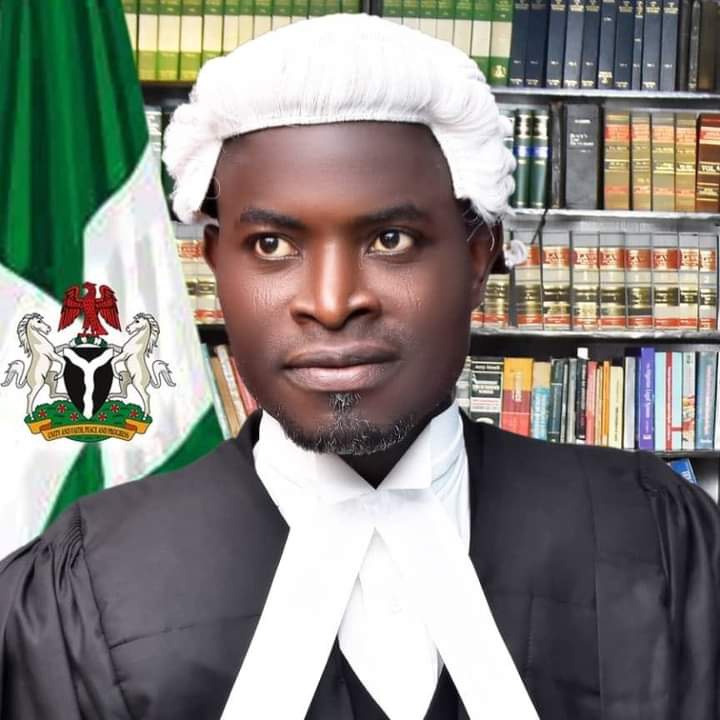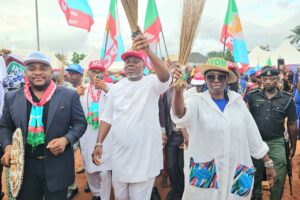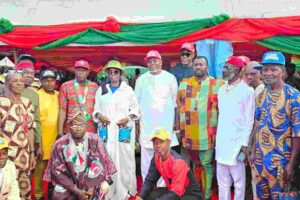
By Tony Ezike
A free-spoken Anambra lawyer Barr Ejiofo Umegbogu has raised concerns over palpable agitations and envisaged constitutional crisis following the recent Supreme Court verdict on the financial autonomy for local governments across Nigeria.
Speaking with newsmen in Awka shortly after the Supreme Court judgement, Barrister Umegbogu explained that the judgement will strengthen the local government system, shift much attention from the federal and state governments, and empower the masses to begin to ask questions on management of resources at the grassroots.
He however said that the court decision will bring about constitutional crisis if the national assembly doesn’t commence amendment of the constitution forthwith, just as he explained that the populist judgement will also lead to agitation for resource control, as well as creation of more local governments by states.
On constitutional crisis, Barrister Umegbogu explained that with the judgement, the judiciary has passed the buck to the legislature to amend certain sections of the 1999 constitution, including section 7(1), section 162(6) that provides for joint state and local government account, and others that entangle the local government system, without which the judgement will be next to nothing, aside triggering constitutional crisis.
On resource control, the legal practitioner opined that the Supreme Court judgment will re-ignite the agitation for control of resources by states because when the various state governments are starved of funds from local government allocation, states will begin to demand for control of their mineral and other resources to enable them run their affairs and pay tax to the federal government.
He argued that the judgement will also water the ground for some states to start agitating for creation of more local governments because presently, while some states have 40 local government areas, others have 18, meaning more money for the former.
According to him, Nigerians will soon asking some critical questions on the lopsided creation of existing local government councils by previous military administrations which resulted to establishment of local government councils based on empty landmass of the North, while the thickly populated cities of in the south got lesser number of council areas, which now translates to lesser federal allocation of resources, on the aggregate.
Barrister Umegbogu suggested that the national assembly comes up with more constitutional provisions to strengthen how people emerge as leaders at local government level, specify and define the tenure of local government Chairmen as is the case with Governors of states.
He equally advocated abolition of State Independent Electoral Commissions, SIECs, through the constitutional amendment, thereby allowing the Independent National Electoral Commission, INEC, to conduct elections for local governments in order to guarantee democratically-elected officials, thereby achieving the intention of the federal government/supreme court.
The legal luminary stressed that the much needed democracy at the grassroots will not be attained if governors are allowed to continue conducting shambolic elections via State Electoral commissions, just to position their Puppets into the local government councils, who will sign out local government allocations back to the governors. Therefore, the aim of local government financial autonomy becomes defeated, and Nigerians will not reap the benefits of the populist judgment from the supreme Court.
“The tenure of local government Chairmen should be specified and defined in the constitution, just like the 4-year tenure of President and Governors were specified. Joint state and local government account stipulated in section 162(6) should be removed from the 1999 constitution. The constitution should be amended to give INEC powers to organize elections into the local government councils”.
Barrister Umegbogu however feared that some state Governors may truncate any planned constitutional amendment using the state legislatures, unless the federal government engages the Governors in consensus building, political conciliation and more economic pressures that can compel the powerful Nigerian governors to key into the wind of change that is blowing.
©EJIOFO UMEGBOGU, is a Historian, Journalist, lawyer and Biographer. Email address: stcollins33@gmail.com




